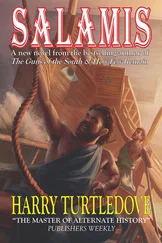The outbreak of war was to change this deceptive, affectionate hostility into real hostility, though the unstoppable deterioration of political life during the thirties had already announced the imminence of the change to whomever wanted to see it. Those who months, weeks or even days earlier had talked over a cup of coffee, on the way out of a theatre or at an exhibition of works by a mutual friend, now found themselves embroiled on opposite sides in street fights which disdained neither the crack of gunfire nor the shedding of blood. The violence, in reality, had been around for a while and, despite the protests of victimization by some party leaders, opposed to it temperamentally and by education, the fact is that the Falange had been systematically feeding it, with the aim of making the Republic's situation untenable; the use offeree was at the very heart of the Falangist ideology, which, like all the other fascist movements, adopted Lenin's revolutionary methods, for whom a minority of brave and committed men — the equivalent of Spengler's squad of soldiers was enough to take power through armed struggle. Like José Antonio, Sánchez Mazas was also one of those Falangists who was sometimes, in theory, reluctant to use violence (in practice he encouraged it: having read Georges Sorel, who considered it a moral imperative, his own writings are almost always an incitement) that's why in February 1934, in the Prayer for the Falangist Dead, composed at the request of José Antonio to put a stop to his men's desire for revenge after the murder of the student Matias Montero in a street brawl, he wrote: 'To a victory that's not clear, gentlemanly and generous, we prefer defeat, because while every blow our enemies deal is horrendous and cowardly, each of our actions must be the affirmation of a higher valour and morality.' Time proved these lovely words to be nothing but rhetoric. At a meeting held at the Parador de Gredos on 16 June 1935, the leadership of the Falange, convinced it would never reach power by way of elections and that its very existence as a political party was in danger — for the Republic rightly considered it a permanent threat to its survival — took the decision to embark on the conquest of power through armed insurrection. During the year following that meeting, the conspiratorial manoeuvrings of the Falange — replete as they were with innumerable suspicions, hesitations, provisos, and doubts that conveyed both their scant confidence in their own possibilities of triumph and their leader's prescient fears that the party and its revolutionary programme would be devoured by the predictable alliance of the army with the most conservative sectors of society who would support the coup — did not cease for an instant, until on 14 March 1936, after being decimated in the elections of February that year, the Falange was beheaded when the police closed its premises on Nicasio Gallego Street, arrested its entire Leadership Council and banned the party sine die.
* * *
After that Sánchez Mazas' trail vanishes. One can only attempt to reconstruct his adventures during the months before the conflict and during the three years it lasted by way of partial testimonies — fleeting allusions in memoirs and documents of the time, tales told by those who shared snippets of his adventures, memories of relatives and friends to whom he'd recounted his memories — and also through the veil of a legend shimmering with errors, contradictions and ambiguities which Sánchez Mazas' selective loquacity about this turbulent period of his life did nothing but nourish. So then, what follows is not what actually happened, but rather what seems probable might have happened; I'm not offering proven facts, but reasonable conjectures.
Here they are:
In March of 1936, when Sánchez Mazas is being held in the Modelo Prison in Madrid along with his Falange leadership comrades, his fourth child, Maximo, is born, and Victoria Kent, at that time General Director of Prisons, grants the inmate the three days' leave to visit his wife, which he's entitled to by law, on condition that he give his word of honour not to leave Madrid and to return to the prison at the end of the allotted time. Sánchez Mazas accepts the deal, but, according to another of his sons, Rafael, before he leaves the jail the governor summons him to his office and tells him, off the record, that he sees things getting very dark, half suggesting 'that he would be better off not coming back, and that he, for his part, wouldn't go too far out of his way to find and recapture him'. Since this justifies Sánchez Mazas' later dubious behaviour, the truth of this version could well be called into question; yet equally, one could imagine it not being false. The fact is that Sánchez Mazas, forgetting the protests of gentlemanly behaviour and heroism with which he illustrated so many pages of incendiary prose, breaks his word and flees to Portugal, but José Antonio — who had taken his deputy's words seriously and who judged that not only was his honour at stake, but that of the entire Falange — orders him from his prison cell in Alicante, where he'd been transferred along with his brother Miguel on the night of 5 June, to return to Madrid. Sánchez Mazas obeys, but before he can turn himself back over to the Modelo Prison the uprising breaks out.
The following days are confusing. Almost three years later, Eugenio Montes — whom Sánchez Mazas called 'my grandest and greatest comrade in the drive to put human words at the service of our Falange' — describes from Burgos his friend's situation in the days immediately after 18 July as 'an adventure of street corners and hideouts, with the red henchmen hot on his heels'. The phrase is as novelistic as it is elusive, but perhaps doesn't entirely betray the truth. Revolution triumphs in Madrid. People kill and die in back alleys and barracks. The legitimate government has lost control of the situation and the atmosphere is thick with a lethal mixture of fear and euphoria. Houses are searched; militiamen's control spreads through the streets. One night at the beginning of September, unable to stand the anxiety of secrecy and the constant imminence of danger any longer, or perhaps urged by his friends or acquaintances who'd been running the risk of giving cover to a fugitive of his importance for too long, Sánchez Mazas decides to leave his lair, flee Madrid and cross over into the Nationalist zone.
Predictably, he doesn't make it. The next day, as soon as he leaves the house, he gets stopped; the patrol demands he identify himself. With a strange mixture of panic and resignation, Sánchez Mazas realizes he is lost and, as if wanting to take his leave of reality in silence, for a second of indecision that seems interminable he looks around and sees that, though it's only nine o'clock, the shops on Montera Street have already opened and the urgent, everyday hustle and bustle of the crowd floods the pavements, while the harsh sun foretells another suffocating morning of this never-ending summer. At that moment the attention of the three armed militiamen is caught by a truck stuffed with members of the General Workers' Union bristling with weapons and war cries, heading for the front at Guadarrama with the bodywork painted with initials and names, among them that of Indalecio Prieto, who's just been named Minister of the Airforce and Navy in Largo Caballero's incendiary government. Then Sánchez Mazas thinks up a desperate idea and acts on it: he tells the militiamen that he cannot identify himself because he's undercover in Madrid carrying out a mission entrusted to him directly by the Minister of the Airforce and Navy, and demands they put him in contact with Prieto immediately. Caught between bewilderment and suspicion, the militiamen decide to take him to the headquarters of the State Security Office to check the authenticity of his implausible excuse; there, after a few anguished attempts, Sánchez Mazas manages to speak to Prieto by telephone. Concerned about the situation, Prieto advises him to seek refuge in the Chilean Embassy and affectionately wishes him good luck; then, in the name of their old friendship in Africa, orders his immediate release.
Читать дальше












